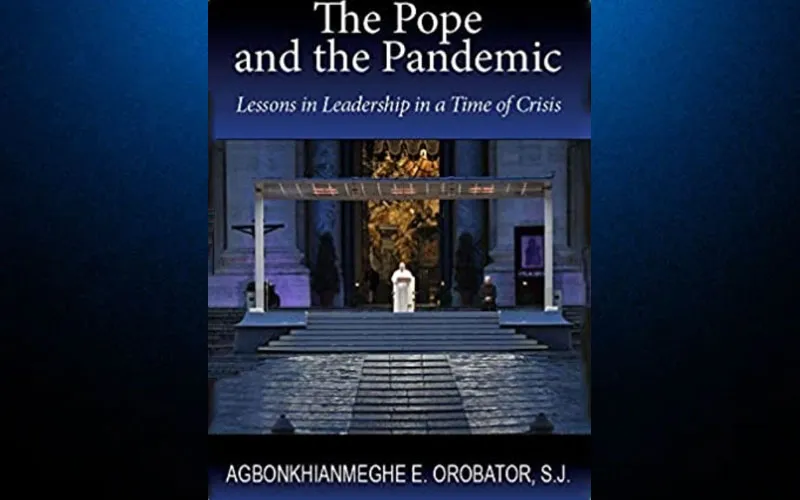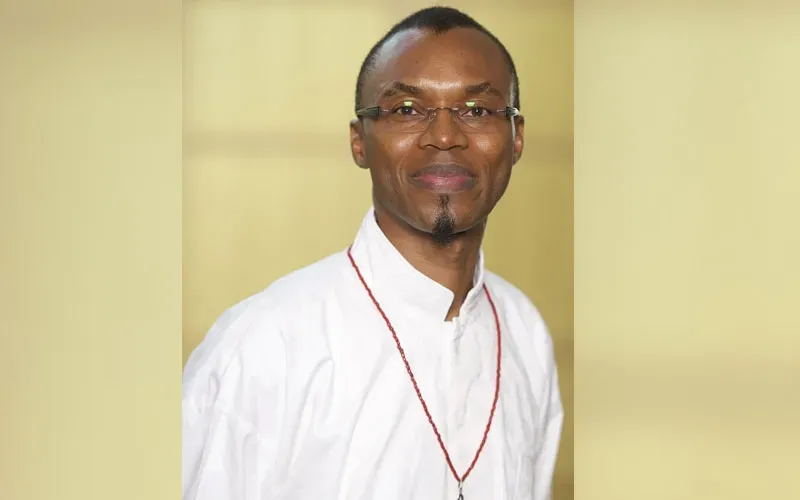Still, other leaders tried to discourage the people from following the basic hygiene rules to limit exposure to the coronavirus, Fr. Orobator says.
He further says that other leaders, including faith-based ones, failed the people through their reluctance to take drastic containment measures.
“Some religious leaders were promoting conspiracy theories, discouraging people from taking basic safety measures to protect themselves or even promising miraculous cures. These are also elements of failures in leadership,” he says.
“Other leaders were even mocking the fact there is a very serious global health emergency,” the Priest says, and adds, “There were many instances in which leaders failed the people. And that is why I find it important to provide the example of someone like Pope Francis and to say that it is possible to be a good leader in a time of crisis and that you don’t have to be a religious leader to do that.”
Fr. Orobator who says he had always wanted to write about Pope Francis’ leadership reveals that the Holy Father’s Eucharistic celebration of March 27 last year was pivotal in his decision to finally write the book.
(Story continues below)
“Like everybody else in the world, I too was looking for light in a time of darkness,” he says when asked about what inspired him to write the 154-page book.
He explains, “When Pope Francis spoke on March 27, he used two images that resonated with me. First, he compared this time to a moment of darkness. He also compared it to all of us sailing in the same boat. This was a big inspiration for me because in my own search for light, I saw in Pope Francis a clear message that if we are to go through this crisis, we need this kind of leadership.”
After the 27 March 2020 Holy Mass, the Priest swung into action, keenly following Pope Francis’ activities in which he demonstrated what the Priest found to be the qualities of a good leader.
The following month, just a few days after the Holy Mass that inspired the writing, Fr. Orobator started drafting the book, which was completed three months later and published in April this year by New York-based Orbis Books.
Found on major online bookstores, the book that costs US$20.00 has six chapters. Each of the chapters deals with a specific aspect of leadership that Pope Francis exemplifies in a time of crisis.
In chapter one, Fr. Orobator addresses the quality of compassion and how leaders are called to journey with their people in a time of crisis as ministers of consolation.
According to the Nigerian Priest, leaders are called to demonstrate empathy, consolation and solidarity in this time of a pandemic.
The Priest addresses how a crisis affects people in different ways in chapter two and calls on leaders to demonstrate “a preference of love for those who are most affected.”
“In a crisis, some people are more vulnerable than others and some suffer the effects of this crisis more severely than others. A good leader shows a preference of love for those who are most affected, those vulnerable, those marginalized during this time. This is what Pope Francis does,” he says.
In chapter three, Fr. Orobator stresses the importance of recognizing and celebrating the goodness in the people who he says have risen to the challenge and shown real qualities of humanity. He gives the example of frontline workers including medical doctors, nurses, people who work in hospitals, those who bury the dead, the drivers, among others.
“These are heroes and heroines worth celebrating,” the Jesuit Priest says, and adds, “Pope Francis repeatedly praises nurses, doctors and other frontline workers and keeps reminding us that these are the people who have shaped the future of humanity and that we need to recognize, value and celebrate them.”
The Priest also highlights various “symbolic events” that Pope Francis holds to boost people’s faith and hope, underscoring the need for leaders to rekindle hope in the people especially at a time of crisis.
In chapter five, Fr. Orobator points out that a leader demonstrates the need for connection and builds bridges rather than divide people.
He provides the example of Pope Francis who reaches out to Muslims and people of other faiths to create the spirit of fraternity.
“Through the bridge-building process, we can confidently face the crisis together. Pope Francis keeps saying that we must avoid a solution of saying everyone for himself. We must build bridges, establish connections, and create fraternity. This is what a leader does and it is exactly what the Holy Father does,” he says.
Fr. Orobator expresses optimism that after a year of the COVID-19 pandemic, leaders have learnt that in a time of a crisis, the priority is on the people.
“Priority in a crisis should not be on politics, not on self-interest, not on ego and definitely, not in getting popularity,” he says, and continues, “Priority should be to protect, support, educate and inform the people. Most importantly, priority should be to protect the dignity of everyone as people created in the image and likeness of God.”
He underscores the need for religious leaders to understand that the first duty of any political institution or government is to protect the people, a duty fostered through collaboration with the various sectors of society.
The Priest says that in matters of public health, the government has the number one responsibility to protect the people, a responsibility that he says requires the support of other institutions, including the Church.
“All other leadership institutions should support the government in its role to protect the people and not contest, contradict the government or confuse people by giving contrary messages. Even Pope Francis suspended Masses. He closed the Vatican Museum, which is one of the biggest sources of income for the Vatican,” the Jesuit Priest says.
He adds, “Leaders should learn to support public health measures rather than contradict them. Leaders are not public health experts. We believe that God can make miraculous cures but in a time of a crisis, we should not be looking for miracles. We should be looking for how we can support very clear public health protocols.”
The Priest who has written and edited a number of books, among them “Theology Brewed in an Africa Pot” and “Religion and Faith in Africa: Confessions of an Animist” says that he prefers to be known more as a storyteller than an academic writer.
“I am a storyteller and only a student of writing. People don’t know that I am just a storyteller. That is how I would like to be known. Not an academic writer,” Fr. Orobator tells ACI Africa, and adds, “As an African, I like to tell stories based on what I observe around me. My stories center around faith and religion and how people understand their relationship with reality.”
The book, the Priest says, is suitable for people interested in the office of leadership all the way from family and the community, as well as “those interested in social issues that affect them.”
His plan, he says, is to develop the theme of leadership to show that even beyond the time of crisis, there are aspects of leadership that need to be explored.
Agnes Aineah is a Kenyan journalist with a background in digital and newspaper reporting. She holds a Master of Arts in Digital Journalism from the Aga Khan University, Graduate School of Media and Communications and a Bachelor's Degree in Linguistics, Media and Communications from Kenya's Moi University. Agnes currently serves as a journalist for ACI Africa.









